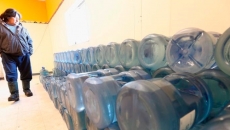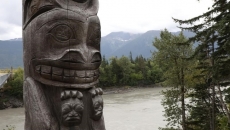VICTORIA - A new report from British Columbia's coroner says suspected illicit drug toxicity deaths in July were the second-highest ever recorded in a single month in the province.
The findings show deaths reached 184 in July, which tied with those in January 2021 and fell just behind June 2020 when 186 people died.
The report comes less than a month after chief coroner Lisa Lapointe said January to June was the deadliest ever for drug toxicity in B.C.
With data from July added, the report says the 1,204 suspected illicit drug toxicity deaths are the highest ever in the first seven months of a year — 28 per cent above the same period last year.
Lapointe says an average of almost six people died every day in July, with 72 per cent between the ages of 30 and 59, while men accounted for nearly 80 per cent of the total fatalities.
Deaths involving fentanyl stayed at 86 per cent, unchanged from 2020, but the report says deaths linked to extreme fentanyl concentrations jumped to 13 per cent from eight per cent.
The ultrapowerful opioid carfentanil was detected in 113 deaths this year, compared with 65 over the same period last year.
When Lapointe released her last report in August, covering drug toxicity deaths over the first half of the year, she said it was "tremendously frustrating" to see the lack of significant progress in stemming fatalities.
The new report says Vancouver Coastal Health and Northern Health have the highest rates of drug toxicity deaths with 47 and 46 deaths respectively per 100,000 population, while the overall rate is 40 deaths per 100,000 residents.
Communities with the highest rates include Merritt, Powell River, Enderby, Peace River South, and Hope, says the report.
Most overdoses in 2021 have been indoors, in private homes, while data show 15 per cent have happened outside in vehicles, parks, sidewalks or streets.
No deaths have been reported at supervised consumption or drug overdose prevention sites, the report says.






